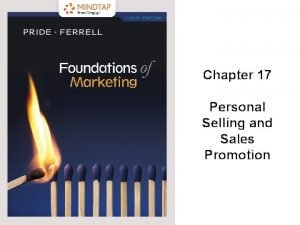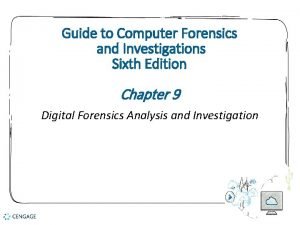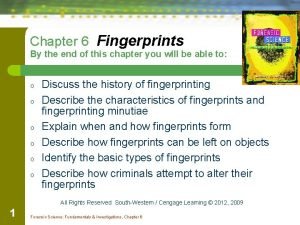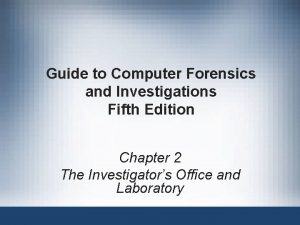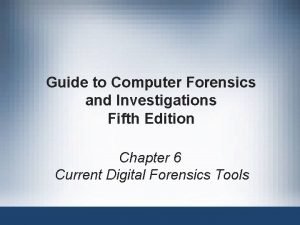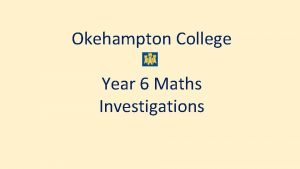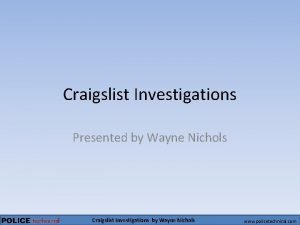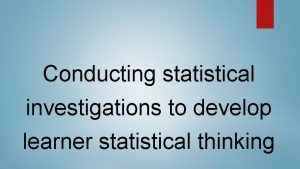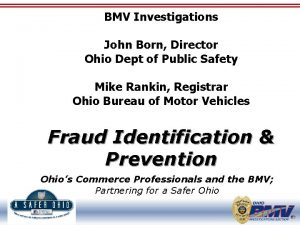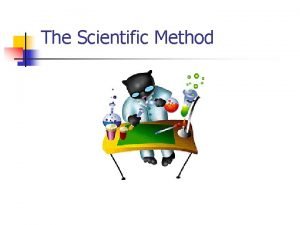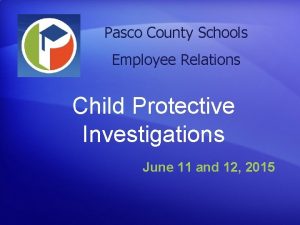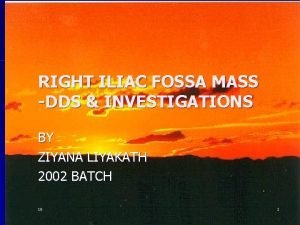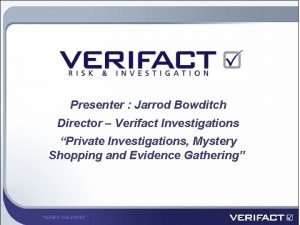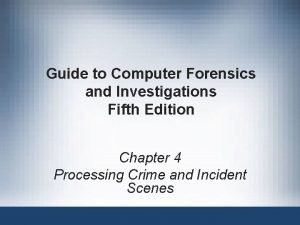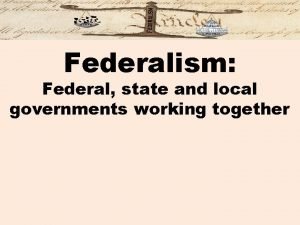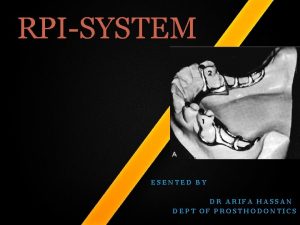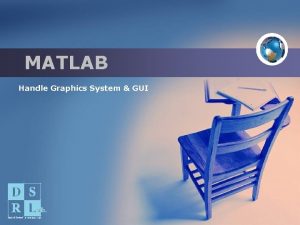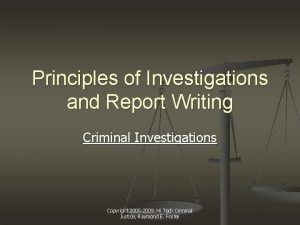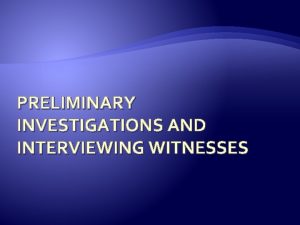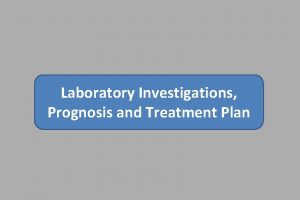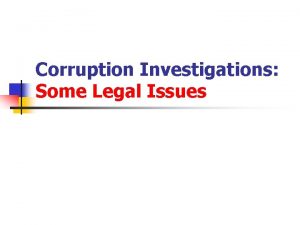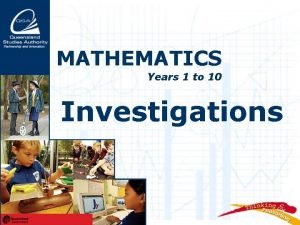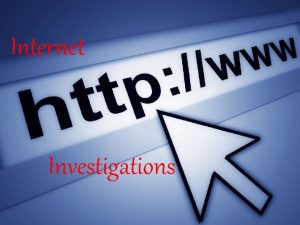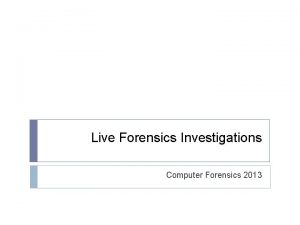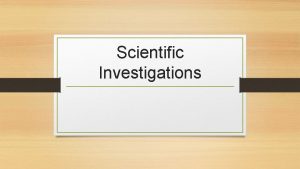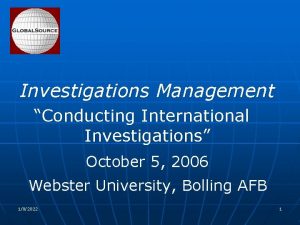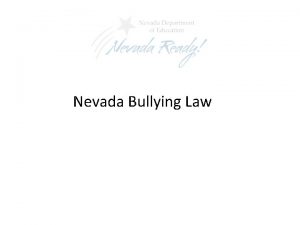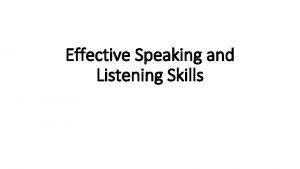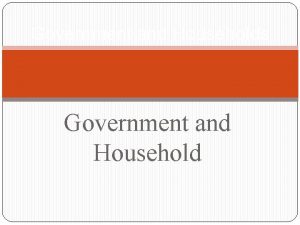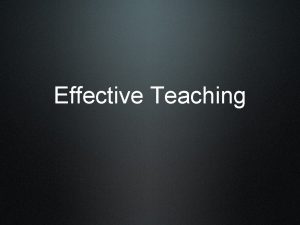Effective Ways to Handle Government Investigations and Implementation





















- Slides: 21

Effective Ways to Handle Government Investigations and Implementation after Findings Fiona A. Philip Presented by: Scott R. Lassar Ike Adams Fiona A. Philip, Sidley LLP Marisol Rubecindo, JP Morgan Lynne Delisi, Novartis

Fiona A. Philip Washington, D. C. Partner Securities & Derivatives Enforcement and Regulatory Fiona represents corporations, officers and directors, and other individuals in a range of government and regulatory investigations. Fiona also conducts internal investigations involving the Foreign Corrupt Practices Act (FCPA), insider trading, accounting and internal controls irregularities, disclosure fraud, and corporate governance issues. From 1999 to 2005, Fiona. As Enforcement Counsel to the Chairman of the Securities and Exchange Commission (SEC), Fiona worked closely with the Division of Enforcement and Office of the General Counsel to craft policy and guidance for SEC Enforcement staff and to ensure consistency in Commission policy. Prior to her work with the Chairman’s Office, Fiona spent three years as Counsel in the SEC’s Division of Enforcement, where she was one of the original members of the Division’s Financial Fraud Task Force.

Marisol Rubecindo Executive Director, Assistant General Counsel Marisol Rubecindo is an Executive Director, Assistant General Counsel in the Government Investigations & Regulatory Enforcement (GIRE) group within JPMorgan Chase & Co. ’s Litigation Department. She co-manages the Regulatory Response Team, which handles government investigations and regulatory requests from SROs and exchanges stemming from sales practice, fraud and other potential violations of Federal and state laws and regulatory rules. Marisol has also served as a regulatory attorney within GIRE. Prior to joining JPMorgan in 2009, Marisol was an associate at both Davis Polk & Wardwell and at Sidley Austin LLP. Marisol began her career at the United States Securities and Exchange Commission.

Lynne Delisi Novartis Pharmaceuticals Corporation Lynne provides strategic focus by managing a docket of complex high stakes investigations with various government agencies. Her contributions focus on minimizing risk for Novartis Pharmaceuticals Corporation by an evaluation of evidence and identification of trends affecting enforcement actions against pharmaceutical companies in the US as well as investigations strategies for the benefit of Novartis Group. Lynne provides regular updates about progress of government investigations and enforcement trends to business and legal leadership. Lynne is responsible for NPC’s investigations docket and manages a highly complex matrix of litigation counsel teams. Lynne works closely with Compliance leadership to provide counseling throughout NPC to clients on risk minimization issues. 4

What Triggers a Government Investigation? • Investor/whistleblower complaints – Dodd-Frank created bounty program for whistleblowers who provide information that lead to enforcement actions with penalties greater than $1 million – 10 -30% of money collected as a result of tip • Referrals from the Division of Corporation Finance and OCIE • Investigative curiosity (industry surveys) • Financial restatements • Significant financial reporting issues (e. g. , onetime charges or write downs) or disagreements with auditors disclosed in Forms 8 -K • News coverage/academic studies (e. g. , stock options backdating) • Civil litigation • Tip from competitor 5

What Should Corporate Counsel Do? • Don’ts – Dialogue with government staff (no “casual calls” with government personnel) – Assume the government doesn’t have an investigative agenda – Assume cooperation = no enforcement action (a fine line between advocate and cooperator) – Assume OCIE staff/Corporation Finance is not working closely with the Division of Enforcement – Assume other regulators will allow any one agency to control the investigation (i. e. an investigation by one agency won't necessarily preclude another agency from conducting its own investigation) 6

What Should Corporate Counsel Do? • Involve experienced government investigations counsel • Document preservation (both hard copy and electronic) – Caution: Broadly disseminated document preservation notice can increase likelihood of a leak • Investor relations contingency planning • Personnel actions (administrative leave, temporary reassignment, enhanced supervision, etc. ) • Question whether the matter warrants an independent, internal investigation – Caution: Consider Ethical Considerations: – Independence / Conflicts of Interest – Qualifications of Investigator – Privilege 7

What Should Corporate Counsel Do? • Make appropriate reports to Board of Directors and relevant Board Committees • Exercise considered judgment in timing of proactive disclosures to regulators, outside auditors, and underwriters’ counsel • Consider public disclosure obligations: – Formal vs. informal investigations – Form 8 -K obligations (Item 4. 02) – Credit Providers and Rating Agencies – Continuing Disclosure Agreements – Debt covenants 8

How to Mitigate • Be Proactive: get arms around facts early and develop themes of defense • Be Cooperative: strike the right tone with the government investigative staff to establish credibility and earn goodwill • Self Police: identify causes of misconduct and take clear and decisive action 9

How to Mitigate • Remediation: punish misconduct and implement procedures/enhancements to prevent its recurrence • Reinforce Core Values: set the right tone from the top • No Cold Feet: the government investigative staff will not give credit for self-policing and remediation plans if you don’t follow through 10

How to Mitigate • Dialogue with the investigators in order to understand their theory of the case and their level of interest in pursuing an action • Where possible, preempt the Wells process by asking for meetings to address their concerns and, if necessary, submit position papers to advocate strengths of your case (and point out weaknesses of theirs) • Identify who needs separate counsel and, if appropriate, assist in the selection of legal representation • Goal is to achieve a soft landing! 11

Triggers for Internal Investigation • Internal Audit • Demand by Outside Auditor • Regulator Inquiry • Whistleblower 12

Selecting the Right Process Ask key process questions at the start. . . and throughout: 1. Who will be investigated? 2. How serious? 3. Who should investigate? 4. Who should they report to? 5. What is scope / depth of investigation? Yates Memo: Look at Individuals OVERALL: Ensure credibility of investigation 13

Who Should Conduct the Investigation? Managers? • Pros Compliance/In-House Counsel? • Pros – familiarity with company structure and its procedures – likely to be quick, more efficient and less expensive – quick response time – familiarity with company structure and procedures – employee comfort and candor – lower cost • Cons – lack of experience; lack of legal advice in early stages – employees may be somewhat more comfortable • Cons – competing time demands – no attorney-client privilege – may lack experience in investigating techniques – may lack objectivity/independence – may weaken privilege claims – may have conflict of interest – may be less objective, from outside perspective 14

Who Should Conduct the Investigation? Regular Outside Counsel? • Pros – familiarity with company and its practices – have sufficient background on legal and regulatory issues to act quickly and efficiently – protects privilege • Cons – may lack internal investigation expertise – may be less objective – may be subject to claim of conflict of interest Outside Counsel Retained Solely For The Investigation? • Pros – stronger statement of independence and objectivity – benefits of investigative experience and substantive expertise – avoidance of any appearance of conflict – protects privilege • Cons – less familiar with company, its business and its personnel – may cause greater alarm among employees – higher cost 15

Some Key Points for Internal Investigations After a Whistleblower Complaint • Respect the allegations • Treat whistleblower, et al. as potential government witness • Ensure steps are documented / proper warnings are given • Address confidentiality / privilege issues early • Be mindful of reporting windows (i. e. 120 -day SEC window) • Beware of internal pressures not to rock the boat • Respond to negative findings appropriately 16

Upjohn Warnings to Witnesses • We represent the Company, not you • What you say is privileged as part of the Company’s attorney-client privilege – But the Company could decide to disclose what you say • Keep confidential the questions and answers in this interview – NOT: You can’t discuss the subject with others • Required by Illinois Rule of Professional Conduct 1. 13(f): In dealing with an organization’s directors, officers, employees, members, shareholders or other constituents, a lawyer shall explain the identity of the client when the lawyers knows or reasonably should know that the organization’s interests are adverse to those of the constituents with whom the lawyer is dealing. 17

Privilege Issues and Yates Memo – May require waiver of privilege to explain investigation step – Unique conflict of interests issues raised by the new emphasis on individual liability • Corporation may need to consider the need for separate counsel at an early stage 18

Yates Memo: 6 Key Elements Guiding DOJ Investigators – No credit for cooperation unless evidence against individuals disclosed – Criminal and civil investigations to focus on individuals at the start of the investigation – Criminal and civil attorneys handling investigations should be in routine communication with one another – Corporate resolution won’t, in the absence of extraordinary circumstances, provide protection from criminal or civil liability for any individuals – Corporate cases should not be resolved without a clear plan to resolve related individual cases – Civil attorneys should consistently focus on individuals as well as the company and evaluate whether to bring suit regardless of individual’s ability to pay 19

Avoid a Whistleblower Retaliation Claim • Determine employee’s status and applicable rules early • “Negative employment action” construed broadly • If discipline, documenting the basis especially important • In the Matter of KBR – SEC issued cease and desist order prohibiting inclusion of “improperly restrictive language” in employment-related agreements • No evidence that such an agreement had ever prevented an employee from communicating with the SEC • Prohibited language was standard agreement not to discuss particulars of the interview without prior authorization – Confidentiality agreements should include carve-out language for protected activity 20

QUESTIONS 21
 Effective salespeople anticipate and handle
Effective salespeople anticipate and handle Gods ways are not our ways
Gods ways are not our ways Guide to computer forensics and investigations 6th edition
Guide to computer forensics and investigations 6th edition Chapter 6 fingerprints
Chapter 6 fingerprints Digital forensic lab floor plan
Digital forensic lab floor plan Tasks performed by computer forensics tools
Tasks performed by computer forensics tools Why aren t descriptive investigations repeatable
Why aren t descriptive investigations repeatable Nrich maths investigations
Nrich maths investigations Craigslist investigations
Craigslist investigations Statistical investigations unit 3 section a
Statistical investigations unit 3 section a Statistical investigations examples
Statistical investigations examples Ohio bmv investigations
Ohio bmv investigations What is the step in scientific method
What is the step in scientific method Child protective investigations pasco county
Child protective investigations pasco county Chs investigations
Chs investigations Iliac region
Iliac region Jarrod bowditch
Jarrod bowditch 3 weeks pregnant ultrasound
3 weeks pregnant ultrasound Investigations
Investigations Chs investigations
Chs investigations National powers
National powers Rpi prosthodontics
Rpi prosthodontics
